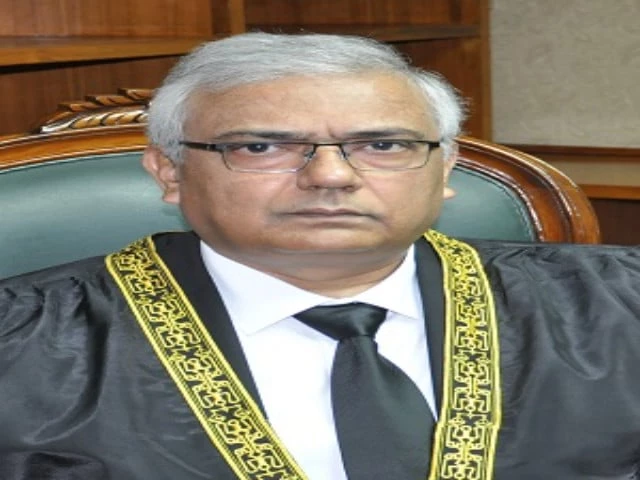According to the Justice Department, the appointment will take effect on the date Justice Khan is sworn in.
President Asif Ali Zardari has appointed Justice Aminuddin Khan as the first Chief Justice of the Federal Constitutional Court of Pakistan.
According to a notification issued by the Ministry of Law and Justice, the appointment was made “in exercise of the powers conferred under clause (3) of Article 175-A read with Article 175-C of the Constitution of the Islamic Republic of Pakistan.”
The notification further stated that Justice Khan’s appointment would take effect from the date he takes oath. This development follows the recent passage of the 27th Constitution Amendment Bill, which was approved by a two-thirds majority in both Houses of Parliament.
Under the new arrangements, a Federal Constitutional Court (FCC) will be established with equal provincial representation. The president and prime minister will play a central role in appointing judges, while some powers of the Supreme Court will now be transferred to the FCC.
The Judicial Commission of Pakistan (JCP) will oversee the transfer of High Court judges. Any objections to such transfers will be considered by the Supreme Judicial Council (SJC).
The eligibility requirement for high court judges to be appointed to the FCC was reduced from seven to five years. The seniority of Supreme Court judges joining the new court will remain intact, while the seniority of members of the bar or high courts will be determined based on age.
Learn more: Supreme Court Justices Mansoor Ali Shah and Athar Minallah resign after passage of 27th Amendment
Additionally, the JCP was expanded to include, in addition to a woman or non-Muslim member, a technocrat appointed by the Speaker of the National Assembly and qualified to become a member of Parliament – a move aimed at ensuring broader, merit-based representation.
Under the new system, suo motu powers will be exercised by the FCC only upon written request and after the court is satisfied that constitutional grounds for intervention exist – a move intended to promote transparency and judicial restraint.
Concerning the transfer of judges, the bill authorizes the JCP to process inter-court transfers. If a judge denies a transfer without good reason, the case will be referred to the Supreme Judicial Council for hearing before a decision is made.




